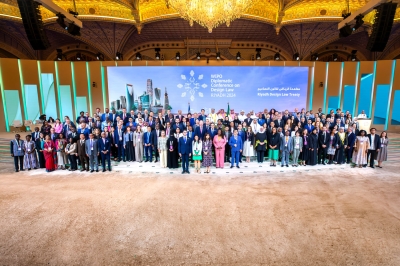


Finance in the Kingdom of Saudi Arabia is the financing of enterprises and individuals according to regulations under the control and supervision of the Saudi Central Bank. According to the Law on Supervision of Finance Companies issued by Royal Decree in 2012, finance is defined as extending credit through contracts for the activities stipulated in this law.
Financing rules and regulations
The financing activity in Saudi Arabia takes place in accordance with regulations determined and set by the Saudi Central Bank. The latter is responsible for supervising and controlling the finance sector, taking the necessary measures to maintain the safety and stability of this sector, and protecting the rights of its employees and customers. These measures involve launching a number of programs to support the financing of small and medium enterprises (SMEs). Moreover, the bank takes responsibility for issuing licenses related to financing activities.
The regulatory and supervisory role of the Saudi Central Bank is prominent in fulfilling some achievements and issuing many regulations related to the environment of the non-bank financing sector. In 2020, the risk-based supervision of finance companies project aimed at directing resources to higher-risk activities was finalized.
Within the framework of the regulatory and supervisory role, the bank issued thirty-nine rules and regulations in 2020, including rules classifying exposure to credit risks and allocations of finance companies, rules for debt crowdfunding, and rules for licensing activities supporting the finance activity. In addition, the bank updated the standardized forms for real estate finance contracts for individuals via Murabaha and Ijarah, the unified forms of car lease finance contracts for individuals, the regulations that allow finance companies to accept deferred deposits, the registration procedures in the contract register and data required for registration, in addition to the provisions and procedures enabling third parties to view the contract register.
Islamic Financing offers in Saudi Arabia
Financing is one of the important operations in the economic and consumer sectors. In this regard, bank financing is the main driver of the financial sector. In 2016, the percentage of SMEs financed with bank assets amounted to more than 5 percent, and mortgage finance reached 7 percent.
The Financial Sector Development Program is a major supporter of all operations related to financing enterprises and individuals, as it provides liquidity that meets investment and consumer demands. The main objectives of the program include increasing Islamic finance offers in Saudi Arabia. Therefore, the program organized related initiatives focused on promoting Sharia-compliant products within its scope.
Debt crowdfunding
Given the multiple finance options and meeting the financial requirements for beneficiaries and investors in Saudi Arabia, including debt crowdfunding, i.e., raising money from participants through a digital platform to extend credit via contracts to beneficiary enterprises, debt crowdfunding enterprises, which are joint stock companies that have a license to practice debt crowdfunding, carry out this activity through a digital platform.
The rules for practicing the activity of debt crowdfunding have determined general provisions for this activity, in which it is prohibited to engage in debt crowdfunding except after obtaining a license from the Central Bank, in line with its provisions and rules. The application for a license to engage in debt crowdfunding shall be submitted to the Central Bank according to the requirements, regulations, and procedures contained in the rules, in addition to future regulations imposed by the Central Bank.
Financing regulations in Saudi Arabia
The financing forms in Saudi Arabia, which are supervised by the Saudi Central Bank, include consumer finance. This is a loan granted to a normal person for purposes not related to business, i.e., outside the scope of the main commercial or professional activity of the usual borrower. It generally includes personal loans, overdraft facilities, car finance loans, credit card finance, lease finance, property restoration finance, and other related activities.
The finance operations shall adhere to the terms and regulations determined and laid down by the Central Bank. As for the finance ceiling, the borrower's total monthly payments against the total loans, including credit card debt, shall not exceed one-third of the net monthly salary. For retired persons, payments are set at 25 percent of the pension. Moreover, the maximum maturity of any consumer finance shall not exceed five years.
Secured finance and microfinance
The financing forms applicable in Saudi Arabia include secured finance, which is a loan secured by the assignment of property rights, such as the usufruct of personal properties or real estate property taken by the lender. A consumer loan can be secured via cash, other material goods, a guarantee, or any acceptable insurance. On the other hand, an unsecured loan is only backed by the borrower's commitment to reimbursement.
Another financing form is microfinance, i.e., financing productive activities for beneficiaries of small business owners, artisans, and the like, provided that the amount of finance granted to the beneficiary does not exceed SAR100,000. Foreign companies can engage in establishing finance companies in Saudi Arabia if they meet the requirements of suitability and conditions stipulated in the Finance Companies Control Law and abide by its executive regulations. Moreover, these companies shall fulfill the requirements and conditions of the Saudi Arabian General Investment Authority (SAGIA) and other applicable laws.
Finance companies in Saudi Arabia
To further control the financing activity in Saudi Arabia, the Finance Companies Control Law was issued. It defines a finance company as a joint stock company licensed to engage in finance activity. The number of licensed finance companies reached forty-two by the end of 2020, with total assets amounting to about SAR45.5 billion at the end of that year, compared to about SAR38.4 billion in 2019. By the end of 2020, the total financing portfolio of the sector amounted to about SAR54.1 billion compared to SAR49.3 billion at the end of 2019.
The types of financing activity practiced by finance companies include real estate finance, production asset finance, SME activity finance, finance lease, credit card finance, consumer finance, microfinance, and any other finance activity approved by the Central Bank.
Finance of small enterprises and start-ups
To control the financing activities of small enterprises and startups, a regulation was issued in this regard aimed at setting a framework that includes the terms and conditions for obtaining bank finance for the purposes of establishing small and micro enterprises. The bank's CEO sets the executive procedures for regulating the finance request.
Financing these enterprises achieves a number of goals that add to the GDP, such as encouraging citizens to engage in freelancing, creating job opportunities for citizens, maximizing the contribution of small and micro enterprises and startups to the national economy, supporting and encouraging economic activity in developing regions, supporting low-income people and transferring them from pastoral to developed communities, and promoting local content by supporting economic activities that have a high impact on the localization of technologies and the development of human capabilities.
The law specified the scope of financing for these enterprises in a way that priority in financing is given to projects that meet the most criteria: projects or enterprises with a less than SAR1 million investment cost, projects or enterprises that are new or under construction, projects or enterprises that are located in remote and developing areas, projects or enterprises set to benefit from the comparative advantage of the region in which they would be established, projects or enterprises that achieve the highest rate of Tawteen (Saudization), creative and non-traditional projects or enterprises, and projects or enterprises that target job seekers and social security-dependent families.
SME finance portal
For the purpose of increasing financing efficiency, the Small and Medium Enterprises General Authority (Monsha'at) has launched the finance portal that acts as an electronic platform connecting government and private sector financiers with SMEs wishing to obtain finance and enables them to choose suitable financing offers.
The e-portal aims to achieve several goals, such as helping SMEs to obtain suitable finance, reducing finance costs, saving time and effort to obtain the finance, and facilitating access to financing entities by providing all finance initiatives in one single platform.
The portal generated crucial benefits that contributed to the growth of SMEs. Their total share of total financing loans increased by 6.3 percent compared to 2 percent in 2016 and by 8.3 percent in 2020. The portal witnessed significant growth in the financing of these enterprises, as it financed more than 877 enterprises with financing amounts of over SAR1.4 billion.
Finance initiatives in Saudi Arabia
The finance operations have witnessed additional development by activating the indirect lending initiative, which financed SMEs by facilitating accessibility requirements during the COVID-19 pandemic and automating requests through the finance portal. Hence, finance amounts reached SAR642 million to serve 611 SMEs, which increased the contribution of SMEs to the economy.
Finance in Saudi Arabia is not only limited to banks but has also relied on several other specialized institutions. The Saudi Industrial Development Fund (SIDF) has become the main financial enabler of the Industrial Development and Logistics Program. SIDF aims to support the program and develop products and financing programs that meet the needs of investors in promising growth sectors. SIDF has released a number of initiatives and transformation projects, including the launch of new financial products (Multi-Purpose Loans, working capital financing, and Acquisition Financing).
Multiple financing activities in Saudi Arabia
Saudi Vision 2030 stimulated the innovation of more financing solutions through institutions. The Saudi EXIM Bank was established in February 2020 with the aim of promoting the development and diversification of Saudi exports, increasing their competitive capability, and facilitating their access to global markets, as the bank provides many financing products to serve international buyers and exporters.
The various financing activities in Saudi Arabia also included the launch of financing programs for people with disabilities. 5,721 persons with disabilities benefited from social financing, freelancing programs, and financing of SMEs after activating the agreement between Monsha'at and the Social Development Bank.
The financing activities in Saudi Arabia aim to provide financial input for various purposes that improve the growth and development of Saudi Arabia’s markets and institutions. In this regard, the Saudi Exports Program is one of the crucial programs launched by the Saudi Fund for Development in 1999. It is concerned with providing facilities to finance and guarantee exports with the aim of diversifying the sources of national income through developing non-oil exports and increasing their competitive capabilities in line with the general objectives of Saudi Vision 2030.
Related quizzes
Related articles

